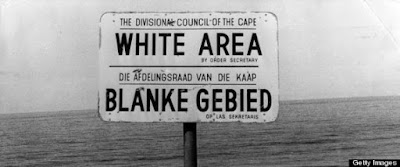Your Office Is Over There, Just Up That Flight Of Stairs - Australian Public Service

In the wake of recent, alarming media around employment of people with disability in the public sector, I started writing a press release.
It went something like this -
'A dramatic drop in the number of people with disability employed in the public service has sparked alarm amongst disability advocates, who are calling for effective measures to resolve the situation.
In 2011, 4.2% of all employees in the Western Australian Public Sector were people with a disability. In 2013, the number has plummeted to a scanty 2.6%...'
Then I sat back and looked at it for a while. Sparked alarm? There hasn't been an outcry from most disability groups, despite the fact that our State Government has announced further cuts in the wake of 1200 axed public service jobs. There hasn't been any detailed analysis around what the proposal to tighten up the Disability Support Pension will do to an already fraught issue, nor whether there's a correlation between the 2012 slashing of the Impairment Tables to land more people on Newstart.
And it's not just a WA issue - it's a national issue.
Before I'm nailed to a public service building by outraged disability groups, I'll point out the obvious - it's Christmas. Most people are on leave, and responding to bad (and badly timed) news from Government is a tricky thing to do at this time of year. We all understand that. But other than a robust response from one disability organisation and a few outraged squeaks from individual advocates, there's almost complete silence. And how, again, did we manage to drop our numbers to being so wholly unrepresented, not just in the media but in the public service?
Fact - Aboriginal people comprise 3.8% of the total population in Western Australia.
Fact - The Australian Bureau of Statistics (ABS) estimates that there are 405,500 Western Australians that have reported to having a disability (20.6 per cent of the total population).
Yet the representation of Aboriginal people in the public sector has steadily increased to 3%, whilst people with disability lag far, far behind other diversity groups. People with disability rate at 2.6% - behind CALD representation, youth representation, representation of women and seniors. And the numbers are rapidly dropping.
I can tell you what the ever-defensive position of the WA State Government would be, if questioned on the topic. They'd tell you that they're aware of the issue - they'd probably use the word 'challenges', as though we were something incredibly tricky that needed to be resolved - and they've taken steps to address it. They'd point to the fact that they've legislated a very good piece of policy work, a mandatory requirement for public authorities to include Option 7 in their Disability Access and Inclusion Plans. Option 7 is an 'outcome' where public authorities will tell the government what measures they're taking to employ people with disability. And they'll point to the shiny new Public Sector Disability Employment Strategy.
But they won't mention the decommissioning of the Equal Opportunity Commission's Substantive Equality Unit, which will save the government a tidy 1.5 million. They won't talk about the new statistics that show people with a disability are more likely to resign from the public service than their colleagues without a disability, and are far less likely to retire. They certainly won't commit to doing anything that smacks of hard work - like having an audit mechanism so someone like an Auditor General can report directly to parliament to assess compliance.
As an embittered public servant with a current workplace fight on her hands, I trotted along to the launch of the Public Sector Disability Employment Strategy. It was the usual style of launch, very good conference sandwiches and a Minister and about 100 people who looked like they'd rather be anywhere but here. I looked around for other disabled people, and saw one in the room, and scooted over to ask her about the event.
'Are we the only people with disability in the room?' I asked. It was amusing, you see - we were under represented in an already under represented sector.
She laughed. 'The funny thing is, there's a guy with a disability coming to talk to us - but he nearly had to get uninvited, because someone forgot to order the ramp.'
That says it all, doesn't it?
Unless someone like you cares a whole awful lot, nothing is going to get better. It's not. - Dr Seuss, 'The Lorax'
Image text - a clenched fist is raised to the sky. The text says - Bolshy Divas Pop Quiz. Q: If December 3 is International Day for People with Disability, what happens during the rest of the year? A: Discrimination



Comments
Post a Comment